It is important to use good products for your building work.
Products can be “non-conforming” or “non-compliant” and these can cause problems.
In simple terms, non-conforming means “bad products”, while non-compliant means “badly installed”. This can cause repairs and costs, health and safety risks, or even building failure.
You may have a problem with your product if it:
- Doesn’t perform right
- Doesn’t look right
- Needs fixing not long after construction
- Its documentation (eg. manufacturer testing) doesn’t seem right
- Causes safety or health issues
Everyone can make sure that good building products are used. This includes home owners, building surveyors, builders, architects, designers, engineers, importers, wholesalers, distributors, suppliers and retailers.
What are non-conforming building products?
This is where the product itself is bad.
Non-conforming building products are: something other than what they say.
These products:
- Claim to be something they are not
- Do not meet the standards for their use
- Are sold with the intent to deceive the buyer
An example is selling a combustible building product labelled “non-combustible”.
What are non-compliant building products?
This is where the product installation is bad.
Non-compliant building products are: installed in a way not permitted by the technical standards (ie. installed in a bad way).
An example is installing a combustible product where only non-combustible products are allowed.
Who is responsible?
Everyone in the supply chain is responsible for their products:
- Manufacturers should support their products with testing and certification. They should also specify how a product can be used.
- Importers, wholesalers, distributors, suppliers and retailers must not breach consumer laws. They should also provide information about a product including limitations.
- Architects, designers, engineers and other specialists must specify products that conform and comply.
- Builders should be happy with the suitability of a product before installing it.
- Building surveyors should request evidence about a product where necessary.
Home Owners and Consumers
You can ask your designer, builder or building surveyor about the products used.
If buying products yourself, you should understand the technical requirements. You should also know how and where they can be used.
Technical Requirements
Building work must meet the minimum design and construction requirements set out in the:
- National Construction Code (NCC)
- Technical standards
- Building Act 2016 and Building Regulations 2016
This makes sure our buildings are safe, healthy and long-lasting.
The NCC gives the following ways of deciding if a product conforms and or complies:
- CodeMark or WaterMark Certificate of Conformity.
- Accreditation by the Director of Building Control.
- Certificate from an appropriately qualified person such as an engineer.
- Certificate from a product certification body accredited by the Joint Accreditation Scheme of Australian and New Zealand (JAS-ANZ).
- Report issued by a registered testing authority.
- Other suitable documentary evidence.
Product assurance
There are a range of methods and schemes that can be used to test and prove that a building product or material is genuine and will do what it is made to do.
A detailed list and description of each of the schemes can be found in the Australian Procurement and Construction Council (APCC) Procurement Guide on the APCC website.
Are you worried about a product?
If you are worried about a building product ring us on 1300 65 44 99 or email us at CBOS.info@justice.tas.gov.au
Where to next
- For information on the National Construction Code, Code Mark Certification Scheme and the WaterMark Certification Scheme, click here
- Residential Building Consumer Guide (PDF, 317.9 KB)
This page has been produced and published by the Consumer Building and Occupational Services Division of the Department of Justice. Although every care has been taken in production, no responsibility is accepted for the accuracy, completeness, or relevance to the user's purpose of the information. Those using it for whatever purpose are advised to verify it with the relevant government department, local government body or other source and to obtain any appropriate professional advice. The Crown, its officers, employees and agents do not accept liability however arising, including liability for negligence, for any loss resulting from the use of or reliance upon the information and/or reliance on its availability at any time.

